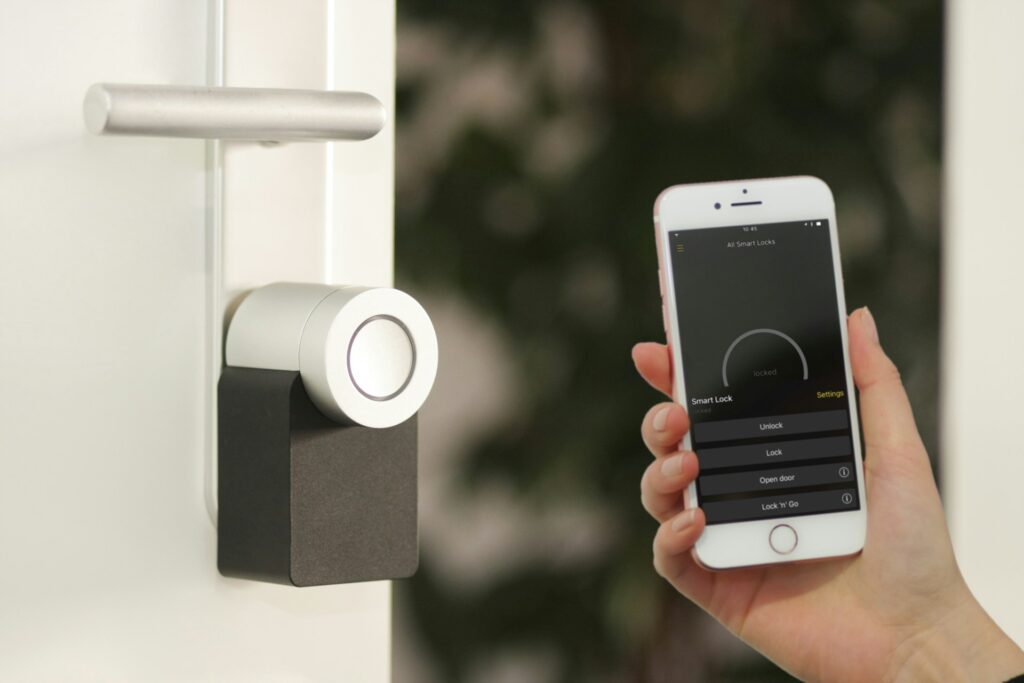
In the age of innovation, smart home security systems have emerged as a revolutionary way to protect homes and loved ones. Gone are the days of traditional locks and basic alarm systems; modern technologies now offer advanced, interconnected, and user-friendly solutions. This blog explores how technology is reshaping home security, the benefits of smart home systems, and the essential components that make these systems indispensable.
The Evolution of Home Security
From rudimentary locks to motion sensors, the journey of home security has been marked by continuous advancements. Today, smart home security integrates artificial intelligence (AI), the Internet of Things (IoT), and cloud computing to provide robust protection.
Traditional vs. Smart Security Systems
Traditional Systems: These include mechanical locks, burglar alarms, and basic CCTV systems. While effective, they are limited in their functionality and require manual intervention.
Smart Systems: These leverage technology to provide real-time monitoring, remote control, and predictive analytics, offering comprehensive security with minimal user effort.
Key Components of Smart Home Security Systems
Smart home security systems combine hardware, software, and connectivity to create a seamless network of protection.
1. Smart Cameras
Features such as high-definition video, night vision, and motion detection ensure clear surveillance day and night.
Many systems include two-way audio, allowing homeowners to communicate with visitors or deter intruders remotely.
2. Smart Locks
Keyless entry systems use PIN codes, biometric authentication, or smartphone apps for enhanced convenience and security.
Temporary access codes can be generated for guests or service personnel.
3. Motion and Entry Sensors
These devices detect unauthorized movements or when doors and windows are opened unexpectedly.
Integrated alerts notify homeowners instantly via their smartphones.
4. Video Doorbells
Equipped with cameras and intercom systems, video doorbells allow homeowners to see and speak to visitors in real time, whether they’re home or away.
5. Smart Alarms
Unlike traditional alarms, smart alarms can differentiate between normal activity and potential threats, reducing false alarms.
They can be integrated with other smart devices to trigger automatic responses, such as locking doors or turning on lights.
How Technology Enhances Home Protection
1. Remote Monitoring and Control
Smart security systems enable homeowners to monitor and control their homes from anywhere via smartphone apps. Whether checking live camera feeds or locking doors remotely, users have complete control at their fingertips.
2. Real-Time Alerts
Smart systems provide instant notifications in case of unusual activity, allowing swift action to mitigate potential threats.
3. AI-Powered Analytics
Artificial intelligence in smart cameras and alarms analyzes patterns and identifies suspicious behavior, offering proactive protection.
4. Integration with Other Smart Devices
Smart security systems can be connected to other smart home devices like lights, thermostats, and voice assistants, creating a fully automated and responsive environment.
Benefits of Smart Home Security Systems
1. Enhanced Protection
Smart systems offer multi-layered security with features like remote access, video surveillance, and motion detection.
2. Convenience and Accessibility
With intuitive apps and voice command compatibility, managing home security is easier than ever.
3. Cost Efficiency
While initial costs may be higher, smart systems reduce long-term expenses by preventing theft and lowering insurance premiums.
4. Peace of Mind
Whether at work or on vacation, homeowners can rest assured knowing their property is under constant watch.
Challenges in Smart Home Security
While smart systems are transformative, they come with certain challenges:
1. Privacy Concerns
Data breaches and unauthorized access to connected devices can compromise user privacy. Choosing systems with robust encryption is essential.
2. Initial Cost
High setup costs can be a barrier for some homeowners, although the investment pays off in the long run.
3. Dependence on Internet Connectivity
Smart systems rely heavily on stable internet connections. Any disruption can temporarily affect functionality.
4. Technical Expertise
Some users may find the setup and management of these systems challenging without professional assistance.
Tips for Choosing the Right Smart Security System
Assess Your Needs: Determine which areas of your home need protection and the features you require.
Check Compatibility: Ensure the system integrates well with your existing devices and smart home ecosystem.
Focus on Data Security: Look for brands that prioritize data encryption and privacy.
Read Reviews: Customer reviews and expert opinions can provide valuable insights into the system’s performance.
Consider Scalability: Opt for systems that can be expanded to include additional devices as your needs grow.
The Future of Smart Home Security
The smart home security market is poised for further innovation. Emerging technologies like facial recognition, blockchain for secure data storage, and IoT-enabled predictive analytics will make systems even smarter and more efficient.
1. Facial Recognition Cameras
These will offer enhanced security by identifying known and unknown faces, adding an extra layer of protection.
2. Blockchain Integration
Blockchain can secure the transmission of data between smart devices, reducing the risk of hacking and unauthorized access.
3. Predictive Security
AI-powered systems will predict potential vulnerabilities by analyzing patterns, offering proactive solutions before incidents occur.
Conclusion
Smart home security systems have revolutionized the way we protect our homes, combining technology with convenience to provide unparalleled safety. As innovations continue to evolve, homeowners can look forward to even more advanced solutions that are secure, efficient, and user-friendly.
By embracing smart home security, you not only safeguard your property but also gain peace of mind knowing you’re at the forefront of technology-driven protection. With a wealth of options available, finding a system that fits your needs and budget has never been easier.
